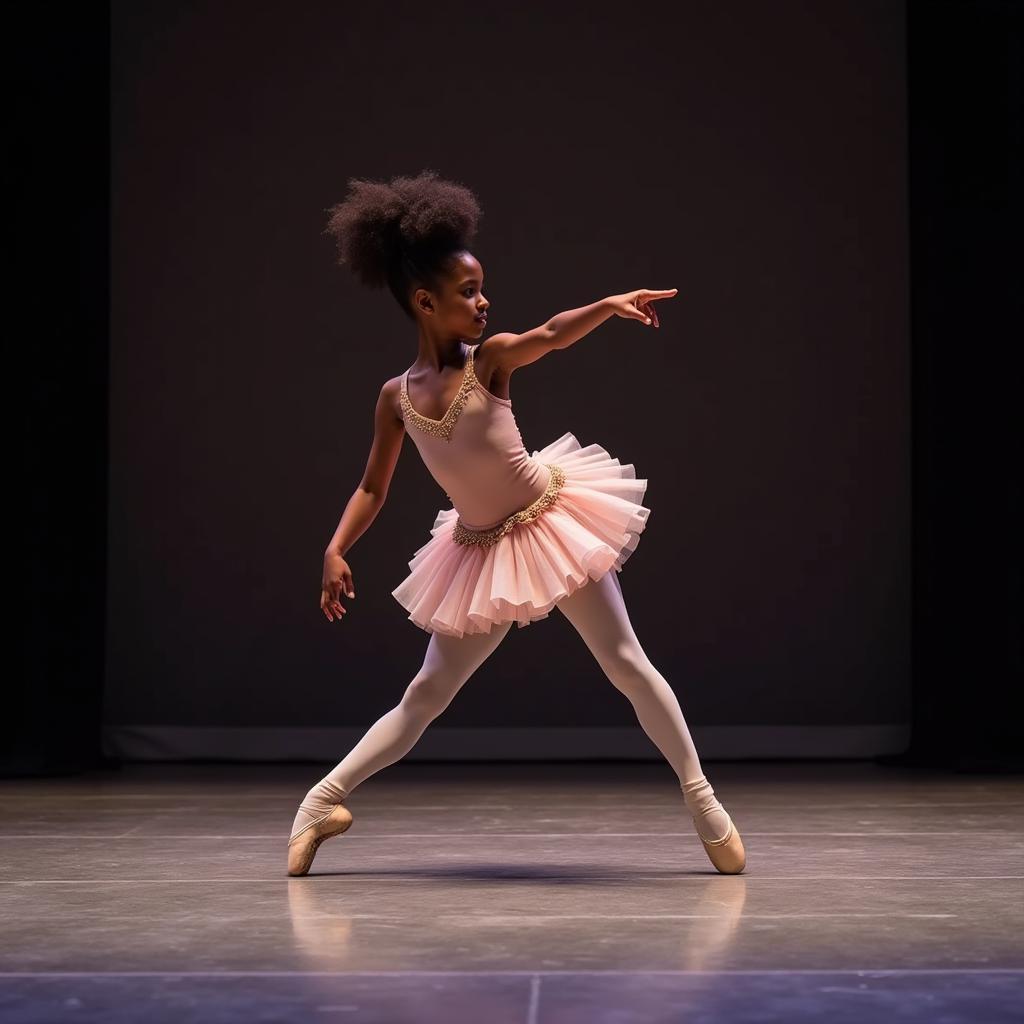A Brief History of African American Theater
African American theater boasts a rich and complex history, deeply intertwined with the struggles and triumphs of the African American experience. From its early beginnings in minstrel shows to the powerful dramas of the Black Arts Movement, this theatrical tradition has served as a platform for storytelling, social commentary, and cultural affirmation. This article explores the key milestones and influential figures that have shaped A Brief History Of African American Theater.
Early Forms and Minstrelsy: A Controversial Beginning
The earliest forms of African American performance in the United States emerged during the era of slavery. These often took the form of spirituals, songs, and dances that blended African traditions with the realities of their new environment. Unfortunately, the rise of minstrelsy in the 19th century saw white performers in blackface caricaturing African Americans for comedic effect. While undeniably offensive, minstrelsy inadvertently provided a stage for Black performers to eventually gain visibility, albeit often under demeaning circumstances. This period laid a complex and problematic foundation for what would become African American theater.
Breaking Barriers: The Turn of the 20th Century
The late 19th and early 20th centuries witnessed the emergence of Black playwrights and actors who sought to challenge the distorted images presented by minstrelsy. Pioneers like William Wells Brown, with his 1858 play “The Escape; or, A Leap for Freedom,” and Pauline Hopkins, a prominent playwright, novelist, and journalist, began crafting works that explored themes of identity, freedom, and resistance. These early works marked a crucial step towards self-representation and the development of a distinct African American theatrical voice.
The Harlem Renaissance: A Flourishing of Creativity
The Harlem Renaissance of the 1920s and 1930s was a period of unparalleled artistic explosion in African American culture. Theater flourished during this era, with playwrights like Langston Hughes, Zora Neale Hurston, and Wallace Thurman capturing the vibrancy and intellectual ferment of the time. Plays like Hughes’ “Mulatto” and Hurston’s “Color Struck” explored complex themes of race, class, and gender, pushing boundaries and challenging societal norms. This era saw a significant rise in black theater companies and a growing audience for their work.
Mid-Century Struggles and Triumphs: Confronting Social Injustice
The mid-20th century saw African American theater grappling with the realities of segregation and the ongoing fight for civil rights. Playwrights like Lorraine Hansberry, whose groundbreaking play “A Raisin in the Sun” debuted in 1959, brought the struggles of Black families to mainstream audiences. Her work, along with that of Amiri Baraka (formerly LeRoi Jones), whose plays often explored themes of Black nationalism and revolutionary struggle, laid the groundwork for the Black Arts Movement.
The Black Arts Movement: A Call for Revolution
The Black Arts Movement of the 1960s and 70s was a powerful force in African American theater. Inspired by the civil rights and Black Power movements, playwrights like Amiri Baraka, Ed Bullins, and Ntozake Shange created works that were explicitly political and aimed at empowering Black audiences. This period saw the rise of numerous Black theater companies across the country, dedicated to producing works that reflected the realities of Black life and fostered social change.
Contemporary African American Theater: A Multifaceted Landscape
Today, African American theater continues to evolve, reflecting the diverse experiences and perspectives of Black communities. Playwrights like August Wilson, Suzan-Lori Parks, and Lynn Nottage have achieved critical acclaim for their works that explore a wide range of themes, from historical narratives to contemporary social issues. African American theater remains a vital force in American culture, offering a powerful platform for storytelling, social commentary, and the ongoing exploration of Black identity.
Conclusion: A Legacy of Resilience and Creativity
A brief history of African American theater is a story of resilience, creativity, and the ongoing struggle for self-representation. From the early days of minstrelsy to the contemporary stage, Black artists have used theater as a powerful tool to challenge societal norms, celebrate their heritage, and give voice to the African American experience. This rich tradition continues to thrive, enriching American culture and inspiring audiences worldwide.
FAQ
-
Who is considered the father of African American theater? Ira Aldridge is often considered the father of African American theater.
-
What was the significance of the Federal Theatre Project for African American theater? The Federal Theatre Project provided opportunities for Black artists during the Great Depression, leading to the creation of numerous Black theater companies.
-
How did the Black Arts Movement influence contemporary African American theater? The Black Arts Movement’s focus on Black liberation and social justice continues to resonate with contemporary playwrights.
-
Who are some prominent contemporary African American playwrights? Some prominent contemporary playwrights include Lynn Nottage, Branden Jacobs-Jenkins, and Dominique Morisseau.
-
Where can I find information about African American theater companies? You can check out african american male strippers.
-
What are some recommended plays to read or see that represent the history of African American theater? Consider “A Raisin in the Sun,” “Dutchman,” “Fences,” and “Sweat.”
Common Scenarios and Questions:
-
How can I get involved in African American theater in my community? Many cities have Black theater companies that offer opportunities for actors, directors, and other theater professionals.
-
What resources are available for researching African American theater history? University libraries, online archives, and books on theater history are excellent resources.
Suggested Further Reading:
- Explore the history of Black playwrights in the United States.
- Learn more about the impact of the Harlem Renaissance on theater.
If you need further assistance, contact us at Phone: +255768904061, Email: kaka.mag@gmail.com, or visit us at Mbarali DC Mawindi, Kangaga, Tanzania. We have a 24/7 customer support team.



